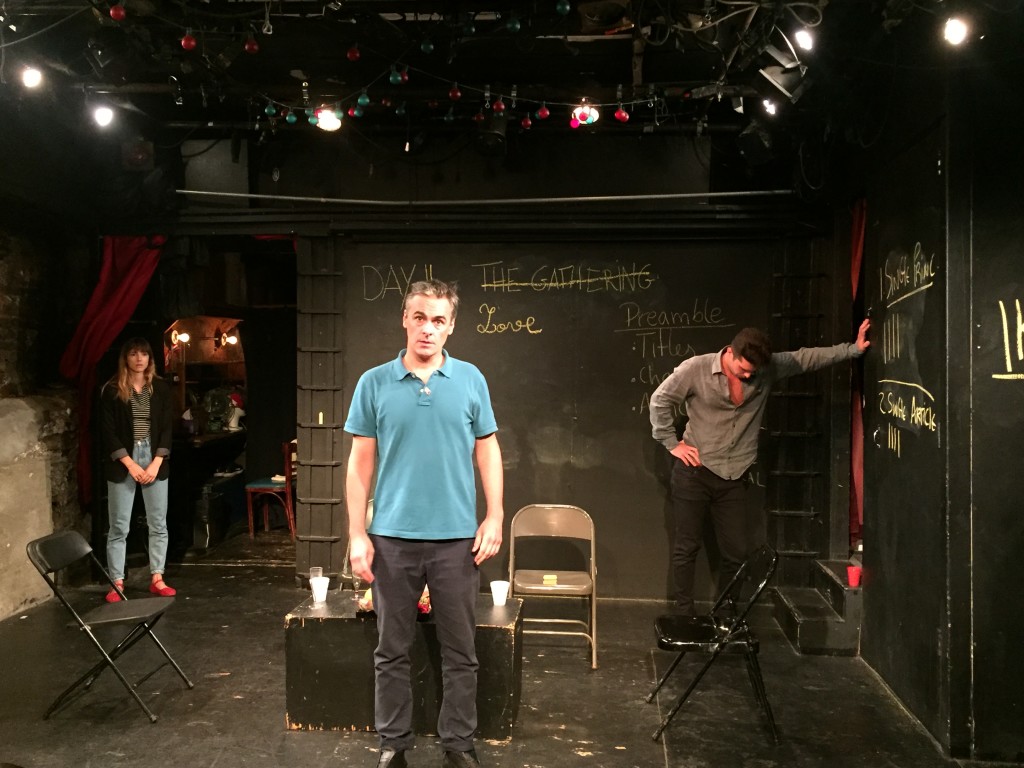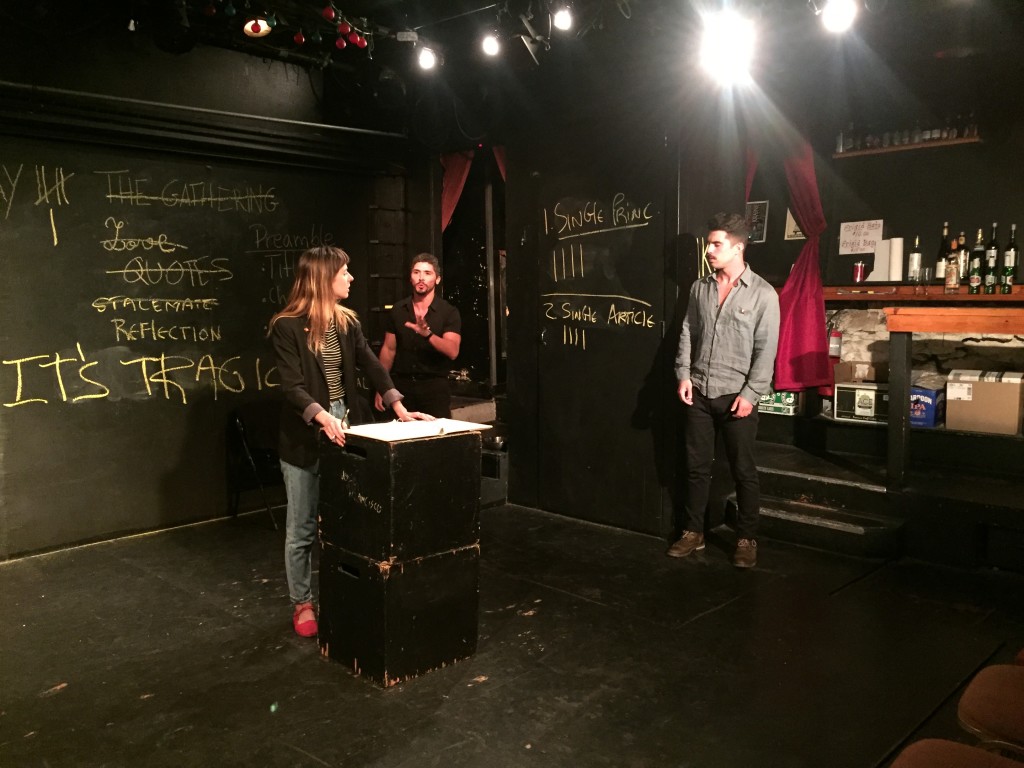 What is the most important thing a nation could have? Many would say romantic things like peace or the end of poverty and subsequently hunger. Others will go farther and dig into class division and the disparity of rights to come up with their answer. Sadly, as beautiful and ideal as these scenarios would be, the realistic aspects of society would never let something so broad succeed. I know, terrible. So the most important thing a nation will need is a set of rules and laws in which its citizenship can abide and maybe one day reach one of those generalizations. But what if a country has run out of options and gives its power to the creative types to organize such a document with a ridiculous time limit. And what if their mission becomes making that constitution based on the most romantic idea of them all, boil down the set of rules to follow one shining light: love. In Mickaël de Oliveira’s “The Constitution,” the concept of love and the concept of law clash while four actors try to merge them together in a way that it could make sense.
What is the most important thing a nation could have? Many would say romantic things like peace or the end of poverty and subsequently hunger. Others will go farther and dig into class division and the disparity of rights to come up with their answer. Sadly, as beautiful and ideal as these scenarios would be, the realistic aspects of society would never let something so broad succeed. I know, terrible. So the most important thing a nation will need is a set of rules and laws in which its citizenship can abide and maybe one day reach one of those generalizations. But what if a country has run out of options and gives its power to the creative types to organize such a document with a ridiculous time limit. And what if their mission becomes making that constitution based on the most romantic idea of them all, boil down the set of rules to follow one shining light: love. In Mickaël de Oliveira’s “The Constitution,” the concept of love and the concept of law clash while four actors try to merge them together in a way that it could make sense.
The task is massive for both the characters and the actors. Here are four different types of people having to agree into creating what the future of what their country would look like. The ensemble did a great job in making the importance of such a responsibility weigh heavy on their mind. The best happens when personal feelings start corrupting their own view of what love means and how it could work for the whole country. The idea of love itself is subjective; imagine a whole country having to understand your one vision.

Director Jill DeArmon has taken the translation by Maria Inês Marques and done a powerful job in bringing it to American audiences. The script raises the right types of questions and she is the captain steering them to be asked the right way. Through each of the days, we explore different types of theater and communication, exposing their personal feelings and ultimately their obsession with the importance of the moment. The show is only bogged down by shorter “days,” (each scene is based on a day) as the play progresses, as each day lasts less and less time and the conundrums built are more skimmed upon than investigated fully. While they do this with style, it took away from the ending which felt more forced than needed.
“The Constitution” is a fantastic example of how a company like Saudade Theatre could thrive in another country. This kind of story is universal, but by them putting it in a specific place they raise awareness of both their country and their government. That is a great example of how to use theater to expand knowledge, educate, entertain and get people talking.
Out of 4 stars:









